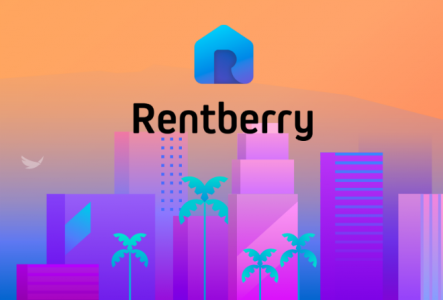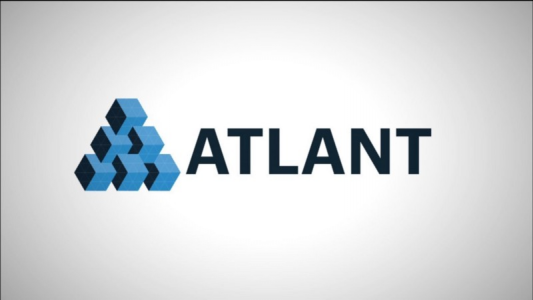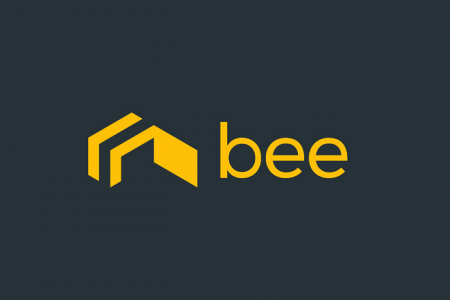Several industries are experiencing obstacles to their growth. In the supply chain industry, fraud, theft and wastefulness prevent it from reaching its full potential. Healthcare is bogged by legacy patient data systems. And we all know the problems plaguing payment systems and banking.
When first the developers, and then the masses, saw the potential in a distributed ledger to revolutionize different industries, several teams jumped on the blockchain bandwagon to become the first player in these niches. We now have multiple projects working to overcome the obstacles in the aforementioned industries with blockchain technology.
The industry we focus on here, that of real estate and property, faces its own dilemmas too. Skyrocketing prices and a free-for-all for what few homes are available make the rental procedure for potential tenants a dreadful experience. There is little trust between landlords and tenants, and the paper-based system of home-ownership and renting make it time-consuming and tedious. In some cases, processing takes over a month. In short, people have trouble finding homes, being allowed to stay there and paying for them. You can read more about the housing industry and the crisis in this article.
That sounds very much like problems that can be tackled by a distributed ledger system. Secure payments and refunds? Check. Trust? Check. Digitalized data sharing? Check. Near instant confirmation? Check.
In fact, there has been a growing belief in blockchain’s ability to better the property industry – even on a national level. Sweden is deliberating how blockchain and smart contracts can be used for real estate transactions. Georgia, Brazil and Honduras are the doing the same. When something captures the positive attention of a government, you know there’s something to it (whether or not the government makes a mess of it is a different matter.)
Let’s take a look at the different projects working to change the property industry. The projects listed here concentrate on different aspects of the industry – some veer towards rentals, some towards the sale and purchase of real estate, and other stills choose to function as something like an Airbnb by creating a home sharing network established on the blockchain.
Rentberry

Rentberry is one of the many projects attempting a great disruption and they are advantaged by the fact that they existed before the realization that blockchain could revolutionize the industry. Rentberry is a successful home rental service that operates in major cities of America. They have been covered by the Wall Street Journal, Forbes, BBC and Inc, as stated on their website.
The target audience for this platform is primarily landlords and tenants, and Rentberry wishes to make renting easier for those involved. The project will usher in the digital era of property listing, with a fully transparent approach that prevents “bidding wars”.
The smart contracts approach will prevent security deposits from being held by landlords, and deductions can be made in a fair manner with the pre-existing stipulations laid out in the smart contract. The services offered by Rentberry will include easy submission of maintenance requests, tenant and landlord screening, third party service providers like plumbers and an auction system.
The team considers the platform’s auctioning technology to be their distinguishing intellectual property, for which they are applying for a patent. It is through this system that tenants can see all competing offers for a property. It will also ensure that landlords price their property appropriately in both hot and cold markets.
In this system, applicants will have offer 1,000 BERRY tokens as application for a landlord’s property. This fee covers a background report, including credit score. Later, a reputation system will be integrated into the blockchain which will further provide both landlords and tenants with data to help them make a better decision.
The screening system will be based on a variety of factors and utilizes a proprietary scoring model. These factors include previous payment performance, eviction history, credit scores and publicly available information. For more details, you can read Rentberry’s whitepaper which is available on their website.
As mentioned, the fact that Rentberry is already well-entrenched in the rental market gives them an advantage. Their ongoing business includes over 200,000 property listings and nearly 5,000 cities. That is an enormous pre-existing user base from which they can grow this blockchain endeavor.
Alex Lubinsky is the CEO, and has experience in investment banking and the real estate industry. He was the co-founder of CityHour and previously worked as the Director at BIC Securities. Lily Ostapchuk is the co-founder CPO and has real estate experience in the American and European markets. Aleksey Perfilov is the CTO, and has worked at Amazon, Altera and Hi5.
Rentberry has only just completed their token sale where they raised $30 million dollars. They also raised $4 million in seed funding from investors in 11 countries.
Atlant

Atlant was founded in 2016 by Julian Svirsky, Neil Mohinani and Denis Donin.
Like the other projects in this space, Atlant wants to ship real estate to the blockchain. The two major services of the platform are P2P rentals and tokenized ownership. The idea of P2P rentals is clearly the most direct way in which blockchain can transform the property industry – tenants and landlords can connect with each directly, pay directly and solve disputes directly in an efficient manner.
However, it is the idea of tokenized ownership that makes Atlant an interesting project. To keep it simple, once a real estate property has been legally verified, the value of the property can be tokenized – even in area measurements. That is, 1 token can be worth 1 mm2 of the property.
In other words, a property can be owned by multiple stakeholders, making it easier to sell and offering a lot of investment potential. Rather than spending a great sum to invest in a particular piece of land or property, one could invest a little in various ones. Those who make this investment can benefit from rent and trade the tokens.
Built on the Ethereum platform, Atlant uses a custom protocol for its project. It connects the Ethereum smart contract infrastructure with the Atlant platform. For the details on the technical elements of the project, read Atlant’s whitepaper.
Julian Svirsky is the CEO and has previously worked at BNP Paribas and Sberbank CIB. He specializes in financial markets, trading and hedge funds. Neil Mohinani is the CFO and has worked at HSBC and Enclave Capital. He has particular knowledge of the Asian markets and investment banking. Denis Donin, the CTO, has over 5 years of experience in developing blockchains and smart contracts, and has previously worked at Fintex.
The Atlant DAO prototype was launched in June 2017. A few months later, the token presale was conducted. The public token sale took place in September 2017 and the platform will launch in March 2018. By April 2018, they hope to launch the P2P rentals feature. In the years to come, they wish to partner with government blockchains. The moonshot goal is to capture 5% of global real estate transactions, which is a $200+ trillion market.
Atlant is currently ranked 622 on Coinmarketcap, with a market cap of $3.5 million and a value of $0.26, down from a peak $2.58 in early January 2018. The Satoshi value is 0.00002754 BTC, down from a peak of 0.00019252. Support lines seem to hover at the $0.20 – 0.25 level, so if this is a project you would like to buy into, perhaps now is the right time as it is on a dip. The total supply and max supply is 54 million ATL and the circulating supply is 13 million ATL.
Atlant is available on several exchanges, including HitBTC, OKEx, Changelly, Quoine and Coinomi. OKEx accounts for over 60% of the trading volume.
Bee Token

The Bee Token platform was launched in 2017 and its team comprises of employees who formerly worked at Google, Facebook, Uber and the digital identity blockchain project Civic.
Bee Token’s intention is to take the economic models of platforms like Uber and Airbnb, couple it with the peer-to-peer technology of blockchain, and apply it to home rentals. The end result of this is that the money exchanged stays between the participants of the platform – unlike a service like Uber, where the company takes a hefty cut of the money. One quick glance at the project’s documentation will tell you that they are very much like Airbnb, but decentralized through the use of smart contracts.
The team has serious ambitions to create a new kind of sharing economy. The platform where this sharing economy will be executed, Beenest, is a marketplace where people can find homes to rent, resolve disputes and earn some income on the side.
The Beenest dapp is built on the Ethereum blockchain and its features of easy payment, dispute resolution and reputation management (basically how nice a tenant or landlord you are) is made possible through the Bee Protocols.
These protocols, Payment, Arbitration and Reputation, are an important element of the platform. These protocols, as their names indicate, are what allow for the existence of the features of the platform. What’s enticing about this platform is not the protocol’s themselves – which are not particularly unique – but the integration with third parties. They are designed such that companies like CouchSurfing and Airbnb can make use of the Beenest platform.
The protocols also hope to offer faster development cycles and access to a wealth of data on customers and their reputation scores. What the latter means is that those companies who lack an existing user base can integrate with the platform to gain a good launchpad for their idea.
This project does indeed have an impressive team with experience in some major companies. Jonathan Chou, who has worked as an engineer at Uber and Grindr, is the co-founder and CEO. Tony Tran, co-founder and CTO, has previously worked as a software engineer in Uber and is knowledgeable in Machine Learning. Ali Ayyash, co-founder and Lead Engineer, has worked as a software engineer in both Google and Amazon. Jordan Ong, the last of the co-founders and the Head of Product, was formerly the Product Manager at Facebook, and has also worked at Google.
Bee Token completed their private alpha in Q4 2017 and published their whitepaper on January 1, 2018. In the first two quarters of 2018, they will launch their Beenest Alpha in San Francisco and the Bee Protocols on the Testnet.
The last two quarters of 2018 will see the launch of Bee Protocols on the Mainnet and a few dapps. In 2019, they will take things to the next level, expanding their platform to 5 cities in the United States, and offering more dApps. 2020 onwards, they hope to expand to London, South Korea and Singapore.
Bee Token has had an extremely topsy turvy life on the market. It has only very recently completed its token sale on February 3, 2018. Ranked 1288 on Coinmarketcap, it is currently valued at $0.16, down from a peak of $0.28 in early March 2018. Peak Satoshi values were around 0.00002451 and it now hovers at 0.00001756. One could invest in the platform right now, but this is a risky bet, given its recent appearance. It may just do better to hold out for a little while. There is a total supply of 500 million BEE.
BEE is only available on the IDEX exchange, with a trading volume of just under $300,000 in the last 24 hours.
Ubitquity

Headquartered in Delaware in the United States, Ubitquity was founded in 2015 and claims to be the world’s first blockchain platform for real estate record-keeping. They’re a Software as a Service (SaaS) platform that lets individuals, businesses and municipalities securely store and track properties through the blockchain ledger, which is transparent, incorruptible and encrypted. Nathan Wosnack is the founder and CEO of Ubitquity.
Currently, they seem to be focused on the B2B market, aiming to help them speed up their real estate transactions, though don’t discount them from offering services to individual customers in the future. They also run a blockchain-based notary service called BitNotarize (which does not appear to be live) that allows individuals to store and sign notary documents.
Ubitquity’s platform alpha demo was launched on February 27, 2017. Since then, the project has been working on launching a pilot demo with the Land Records Bureau in Brazil. They are also working with existing players in the real estate industry to learn how to better offer their services, and follow policy and design new ones.
What Ubitquity is essentially setting out to do is offer a digital equivalent of the paper-based records in real estate. Stakeholders can quickly record and search for titles and investigate the authenticity of ownership. They estimate that by automating this process, up to $4 billion can be saved annually through the reduction of human involvement.
The platform also aims to be blockchain-agnostic. They currently operate on the Bitcoin blockchain, but they say that they are fully compatible with Ethereum, Hyperledger and MultiChain.
They have partnered with Columbia University, University of British Columbia, the Agentic Group and Colu. Ubitquity has secured private funding for its platform and is not expecting to seek investment globally.
Final Thoughts
It’s clear that blockchain is set to disrupt the property industry in a big way. There is reason to be optimistic particularly because some of these platforms already have working prototypes that can be tested. In Rentberry’s case, there is even an existing user base with which they can test their platform and use as a launchpad for further growth.
The key challenge in this space will not be the conversion of users, but the conversion of landlords, businesses and tenants, who are likely to be from a generation averse to the radical technology of blockchain. Winning this segment of users – the providers of real estate – will be key to growing the network and establishing a particular platform’s dominance.
As with most blockchain projects that target the individual user in a use case that is essential to everyday life, in this case that of property use, education and awareness will play an important role. Whichever project can do this will likely have a great advantage.
No one should be so presumptuous as to predict how well a project will do or which one will succeed in a niche, but it is absolutely certain that the real industry will change because of blockchain. The specifics might be hazy, but the general picture is quite clear: blockchain will revolutionize the property industry in some way.
Related: Beyond Cryptocurrency: 5 Ways The Blockchain Will Transform The Way We Live
By: Erica Johnson

